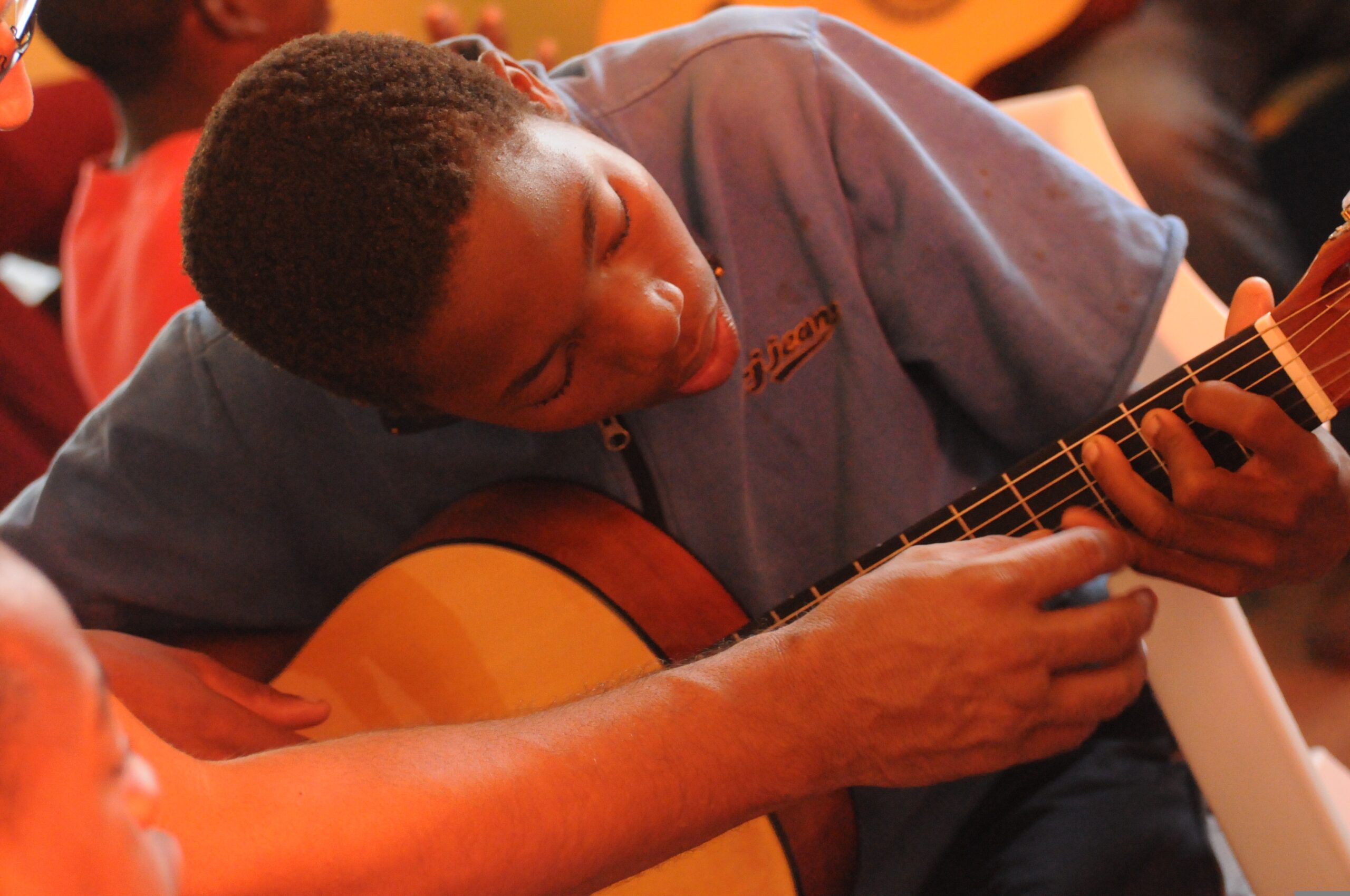
As music educators, inspiring others to learn and appreciate music can be very rewarding. Music teachers bring the “gift of music” and with each day, they often see for themselves the impact music has on the lives of their students. The confidence, sense of accomplishment, and so many other positive outcomes not only inspire students to keep practicing, but encourage teachers to keep teaching. This article will discuss the huge impact music has on self-esteem.
Many Notes and One Song, the Small Steps of a Great Journey
Learning music gives us the ability to see how small accomplishments can create a large achievement over time. An instrument lesson often begins with level one and graduates into more advanced levels. But within that, there are many small challenges that come with learning a new instrument. As students achieve these smaller accomplishments and then look back and see how far they’ve come, it can bring a great sense of accomplishment and build self-esteem. Learning music teaches that in life, it is often better to break down a large goal into smaller tasks. It also teaches us to be patient for the outcome. This is a recipe for success in anything attempted later.
Practice as A Way of Life
Learning music teaches us that practicing a craft and doing it well should be treated as a way of life. Many times, traditional education is a culmination of memorized facts and tests. The traditional approach to learning may lead one to assume that learning is a temporary activity. Once the class is passed, the learning is somehow complete. But as with any artistic craft, music is a lifetime experience. You can never cease being a musician, even if you don’t pick up your instrument again for years. The knowledge is with you forever. And if you continue your journey forward, you will most certainly find yourself continuing to learn new things until the day you die. This can translate into a powerful life routine that may be used in other subjects as well.
Ensembles Working Together
The ensemble nature of music groups foster a mutual respect for each musician and build important teamwork skills. Choirs, orchestras, bands, duos, are all fantastic examples of groups that teach important social skills. Personality differences are set aside when there is a common goal to perform a piece of music. In fact, these personality differences can add to the music arrangement, making the performance a unique musical activity that cannot be copied exactly by anyone. We learn as musicians to listen and respect one another. We learn that our part fits within other parts and makes something extraordinary. This is a wonderful way for musicians to build self-esteem, as it can give them a sense of belonging to a group and help them build skills that help with other relationships.
Understanding Music is Understand Ourselves
The deep connection music and lyrics have to emotion help musicians understand themselves through the music. Music helps musicians become better communicators through composition, and gives musicians a unique chance to understand themselves through exploring emotion and topics musically. Musicians are often actors, putting on emotions and personalities for each song. This experience gives us the chance to safely explore parts of our personality. We can be sad for the sad song or happy for the happy song without risking the person we are in society. This practice can be therapeutic, helping musicians find emotional relief and resolve issues in life.
Music is a Looking Glass to Other Cultures
Learning music from other countries and in other styles is a unique way to explore cultures we would never come into contact with. The universal appeal of music helps break down barriers between people. By expanding our musical taste, we also expand our acceptance for others indirectly.
Music Helps in Academics
The technical application of performing music aids in memorization and other academic subjects such as math and english. Many studies have been done to explore how music can have a positive effect on academics. For more information you can read this article about exploring the benefits of music in childhood development. Performing well academically can boost self-esteem.
Learning music is a unique way to build self-esteem and learn many important life lessons that can help us thrive. Music teachers should see themselves as guides for others on their musical journey and be proud of the difference they make to so many people by doing something they also find joy in doing.

